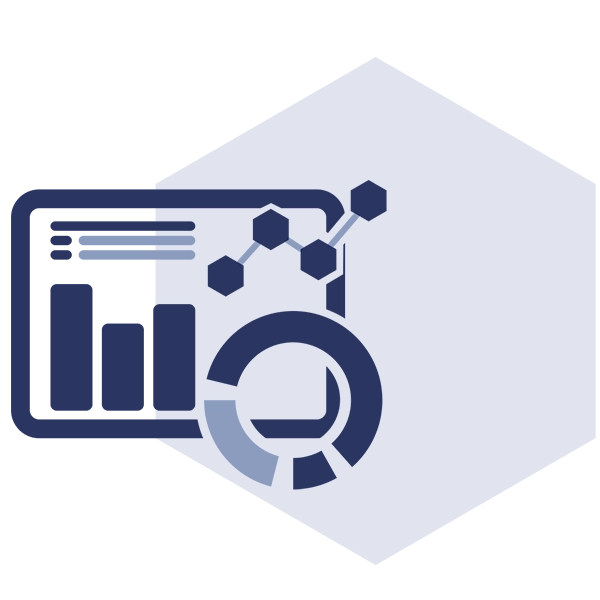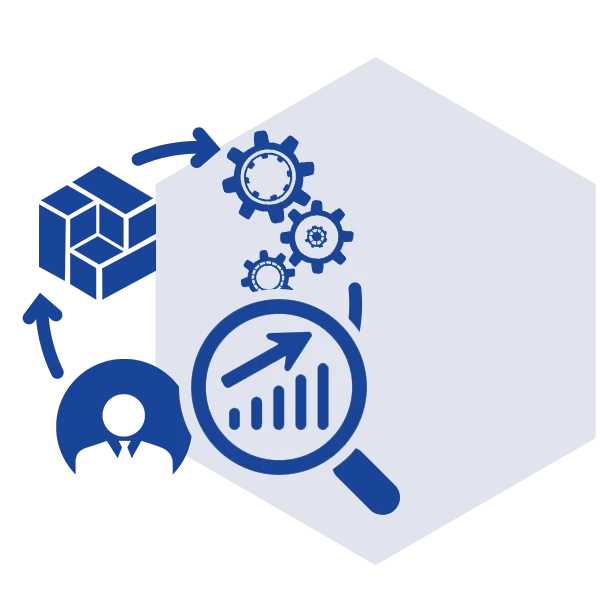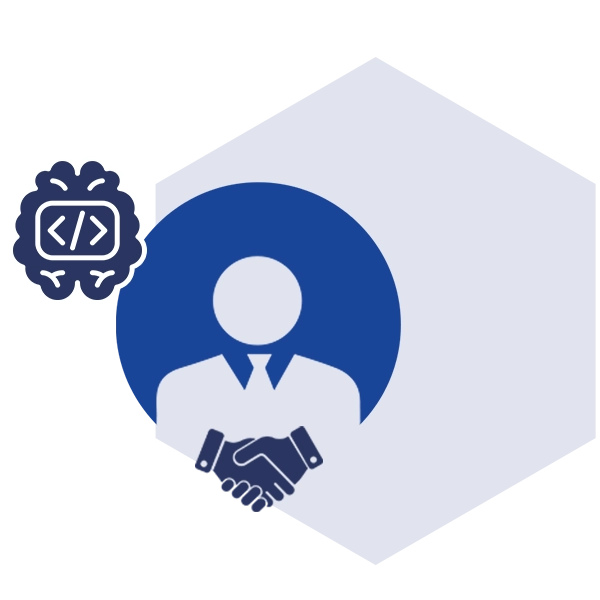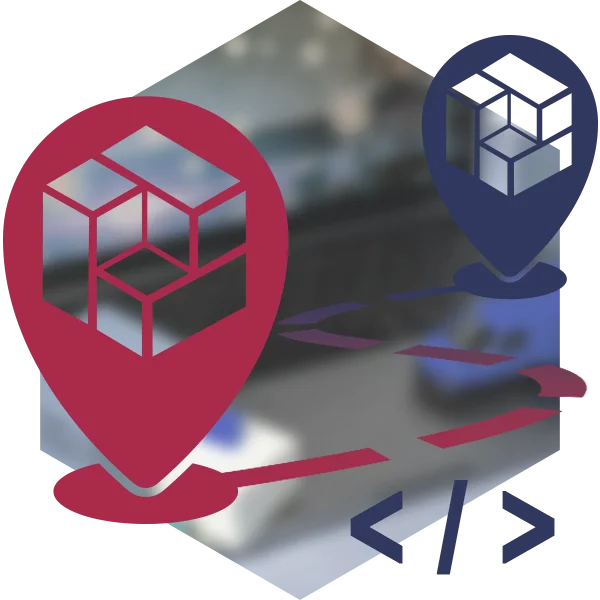
AI Integration Services bring artificial intelligence into your existing business processes and existing systems, tapping into AI tools such as machine learning, deep learning, computer vision, and natural language processing (NLP) and generative AI. Generative AI, including large language models (LLMs), allows systems to create content, automate complex decision-making, and deliver human-like interactions. With Softwarium’s help, your company can ramp up operational efficiency, automate repetitive tasks, and use data driven insights to elevate results.

How AI Can Modernize Your Operations
As customer data continues to swell and customer behavior changes, many organizations look to AI integration solutions for real gains in efficiency, decision-making, and customer satisfaction. Whether you want to optimize inventory management, refine marketing campaigns, or add generative AI-powered virtual assistants for customer support, integrating AI can be the catalyst for a real transformation. Softwarium focuses on customized solutions that work within your existing infrastructure, ensuring a seamless integration with your day-to-day business operations.

AI & Generative AI Integration Benefits: Why It Matters for Your Business
Operational Efficiency and Automation
Speeding Up Work & Cutting Errors
One big draw of AI integration is that it takes on the repetitive tasks that weigh your team down, giving them room to focus on higher-level work. For instance, data entry jobs are time-intensive and prone to human error — but with the right AI models, your business can shrink error rates and free your staff to handle more strategic roles. From scanning documents with computer vision to extracting intent through natural language processing, AI-driven tools keep things moving smoothly, so your people can focus on the bigger picture.

Lower Costs and Smarter Resource Use
Another benefit is that AI powered solutions often drive cost savings. By integrating AI where manual work eats up precious hours — think robotic process automation for back-office tasks — you’ll quickly see a drop in operational expenses. In logistics, predictive analytics can help plan deliveries to cut fuel usage, while in finance, it can streamline compliance checks. In each of these scenarios, a solid generative AI integration strategy helps you use your resources more wisely.

Data-Driven Decision-Making
Turning Raw Data into Real Insights
Data on its own doesn’t do much good. You need insights to guide you. AI integration services let you harness the power of deep learning, natural language processing NLP, and computer vision to interpret huge datasets. Tools like predictive analytics measure historical data to project trends — from consumer preferences to supply chain challenges — so you can move decisively when markets shift. By analyzing customer data, you’ll spot new LLM-based insights and revenue opportunities, shaping your marketing campaigns around what truly matters to your audience.

Making Better Strategic Moves
Once you’re armed with real-time, data-fueled intelligence, you can adapt faster to changes in customer behavior, policy updates, or tech progress. Integrating AI nurtures a culture of data driven decision making throughout your company, replacing guesswork with measured analysis. Rather than guess or rely on old methods, teams can pivot using credible stats, risk assessments, and actionable insights that highlight where growth might be hiding.

Customer Experience Enhancements
Personalization and Continuous Engagement
Modern consumers expect quick results, personalization, and seamless digital interactions. By embracing generative AI integration, your business can leverage natural language processing to power conversational AI or AI virtual assistants. These more advanced virtual assistants deliver immediate answers, highlight relevant product recommendations, and give your customers the tailored experiences they want. Within an e-commerce setting, AI can also focus marketing promos on real user preferences, so your platform feels genuinely helpful.

Smart Virtual Assistants and Self-Service Tools
Beyond simple chatbots, intelligent virtual assistants rely on natural language processing NLP to converse more or less like a human. This leads to quicker resolutions for user inquiries while cutting down workloads for your support teams. Whether dealing with an account question or shipping updates, AI-driven self-service channels speed everything up and keep customers happy. Ultimately, AI driven solutions create a smoother experience, encouraging customers to stay loyal and recommend your brand.

Generative AI Benefits
Softwarium’s Approach to AI Integration
Softwarium stands apart by focusing on genuine collaboration, seamless generative AI consulting, and clear steps to put your objectives into action.
Assessing Business Readiness
Before we propose any AI models or start coding, we’ll work with you to figure out your company’s current setup. A clear understanding of business objectives is crucial for effective AI integration. We look at your existing infrastructure, operational workflows, and how mature your data systems are, so we can tell if you’re ready to see immediate benefits from AI integration or if there are stepping stones we should lay down first.

Core Areas for Assessment:
Custom-Built AI Solutions
No two businesses are exactly alike, so a “one-size-fits-all” AI product rarely hits the mark. Custom AI solutions can be more cost-effective because they zero in on the specific needs and challenges that matter most to you, whether that’s streamline operations or launching advanced tools for data integration.
Our engineers pair traditional machine-learning pipelines with generative AI components when LLMs can add value. For example, rapid document summarization or natural-language report generation.
At Softwarium, we collaborate closely to define your project scope, tapping into machine learning, deep learning, natural language processing (NLP), or computer vision – whatever is the best fit for your situation.

Upsides of Tailor-Made AI:
Implementation and Integration Process
Here’s our implementation and integration process for AI integration services, from the early brainstorming sessions through full deployment:

- 1

Planning & Prototyping
We nail down your business operations priorities and agree on the best AI technologies(like deep learning or natural language processing).
- 2

Development
Our engineers craft AI powered solutions for the challenges you want addressed — whether that’s demand forecasting or customer support enhancements.
- 3

Testing & Validation
We run multiple tests to confirm each AI component delivers solid performance, scale, and security.
- 4

Deployment
Once everything checks out, we launch the new AI solutions within your existing systems, minimizing downtime for a seamless integration.
- 5

Monitoring & Optimization
After the rollout, we watch how the AI models behave, gathering feedback and making improvements where needed.
Post-Launch Training & Support
We don’t just set things up and leave you hanging. From guiding teams through new workflows to troubleshooting, our ongoing support keeps your AI environment running smoothly. Training sessions help employees become comfortable with the new Generative AI virtual applications, ensuring your investment in AI integration genuinely pays off. If you need updates, retraining, or expansions in the future, we can do that too.

AI Consulting Services
Sometimes an organization is not fully prepared to dive straight into a major AI integration project. To accommodate those at the exploration stage, Softwarium offers generative AI consulting — a flexible choice for businesses that want specialized advice without bringing on full-time AI staff. In these sessions, we:
If you decide to grow beyond AI consulting, we can smoothly transition your company into full AI integration services, ensuring you tackle AI at a pace that fits your situation.
Core Industries & Use Cases
Cybersecurity
In cybersecurity, artificial intelligence based threat detection systems are a hot topic. When you apply machine learning to incoming logs, AI models can pick up on odd behaviors — like unauthorized user actions or suspicious traffic patterns. Plus, customer support for cybersecurity products can benefit from intelligent virtual assistants that walk users through common fixes. By harnessing data analytics for threat intelligence, companies boost their competitive edge in a high-stakes market.

Aviation
Integrating AI into aviation can make a world of difference in flight schedules, safety, and customer satisfaction. Predictive analytics driven by historical data can give you a heads-up on likely maintenance issues, cutting down on service disruptions. Meanwhile, advanced computer vision can help with tasks like baggage tracking, speeding up turnaround times and saving costs. By using AI powered solutions to organize refueling and crew availability, airlines run more efficiently, benefiting both the bottom line and the passenger experience.

Logistics
Demand forecasting is a cornerstone in logistics, affecting inventory management, route selection, and overall budgeting. AI integration helps companies dive into shipping metrics, map traffic patterns, and balance warehouse needs. This includes everything from real-time route tweaks based on traffic to analyzing supply chain statuses for potential slowdowns. The result? Shorter delivery times, fewer wasted resources, and a more reliable logistics network.

Why Choose Softwarium for AI Integration
Ready to explore AI transformation with us?
Curious about how AI integration services can give your business a competitive edge? At Softwarium, we’re committed to transforming technology into practical solutions that deliver results. Let’s discuss a custom AI integration plan that aligns perfectly with your business objectives — whether that means predictive analytics for demand forecasting, better customer support tools, or more robust data analytics capabilities.

Schedule a Consultation or Request a Detailed Proposal
Let’s discuss a custom plan, from predictive analytics to generative AI-powered customer support that aligns perfectly with your objectives.
We’ll show you how integrating AI into your existing systems can supercharge your business processes and deliver actionable insights to keep you ahead of the competition.

FAQs
- What industries benefit the most from AI integration?
Nearly any data-focused sector can reap rewards. However, fields like cybersecurity, aviation, and logistics see especially big gains when they implement ai integration solutions.
- How long does an AI integration project usually take?
That depends on factors like your existing infrastructure, data volume, and complexity. Some projects wrap up in a few weeks, while more ambitious efforts may take months.
- What is the difference between AI integration and AI development?
AI integration adds AI solutions to your existing business processes, using your existing data and systems. AI development often involves building AI models from scratch or creating entirely new platforms.
- Do I need specialized hardware for AI integration?
Often you don’t. Cloud options can handle many AI tasks. If you’re doing heavy deep learning with large language models, you might need GPU resources, but that depends on your project.
- Is additional training required for my team?
Yes, most of the time. We offer post-launch training to show your team how to use these new AI tools effectively, so you can maximize ROI.
- How do you ensure AI solutions remain compliant with ethical standards?
We stay informed about industry guidelines and focus on transparency, data privacy, and fairness — especially if you handle sensitive customer data in regulated industries.
- Can Softwarium integrate NLP or generative AI into existing systems?
Absolutely. We regularly use natural language processing for chatbots and advanced text analytics, and we can also integrate generative AI for tasks like dynamic content creation.
- What kind of ongoing support does Softwarium provide post-integration?
Our ongoing support includes regular performance reviews, retraining models, and any needed fixes. If the AI integration has to expand to new data streams or features, we’re here to help.




















